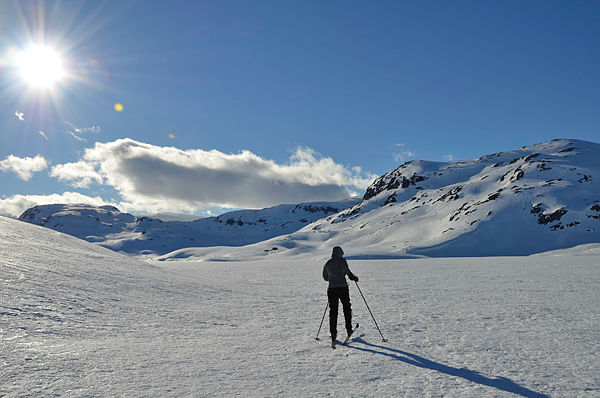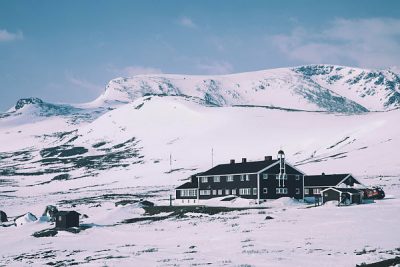Norwegians took off for their annual five-day-long Easter holidays over the weekend. It’s the first Easter without Corona restrictions in three years, and high avalanche danger hasn’t stopped thousands from heading to the mountains for traditional spring skiing. Others have discovered the joy of staying home.

Red Cross volunteers are out in force all over the country, along with search and rescue crews, in the event of more accidents. Avalanche danger has now spread from Northern Norway to the southern mountains as well, with another skier caught in in a slide on Grøtdalstind in Ørsta last week and then another on Steinberget in Rauma.
A total of eight avalanches were registered in Møre og Romsdal and police have been asking skiers to stay away from terrain where danger is highest. Warnings are up all over the country, and skiers venturing out for ski treks up to summits were urged as usual to let others know where they were going and when they expected to be back.
The Red Cross has been preparing for a busy Easter, as has the national mountain trekking organization DNT. Its secretary general, Dag Terje Solvang, was looking forward to “a really traditional and normal Easter” after two years of restrictions and closure of DNT’s vast network of cabins and mountain lodges during the pandemic. “Now our cabins can remain open again, and people can ski from cabin to cabin,” Solvang told newspaper Dagsavisen. “Miles of trails have been marked, food lockers are full and beds are made up. It’s high season again for us.”

DNT owns and operates more than 550 cabins and lodges around the country, in the mountains, in forests and along the coast. Some are fully serviced, with hosts offering three meals a day, while others simply offer a roof over the heads of skiers and hikers arriving with their own sleeping bags and food. The pandemic prompted lots more people to head off on hiking holidays, but ironically, DNT had to close or vastly limit access to its remote accommodation.
Now they’re back in business, but far from everyone heads for the high country during the long Easter holiday weekend that runs through Monday. Just over the border, in Strömstad in Sweden, local police were bracing for an influx of Norwegian shoppers, partying high school graduates and car buffs who drive into the coastal town and literally party in the streets. While beer and liquor sales are shut down on Holy Thursday in Norway, they remain open in Sweden.
The last time partying Norwegian filled up the small coastal town was during Easter 2019. “We’ve had two quiet years, but now we’re prepared for lots of liveliness,” Stömstad Mayor Kent Hansson told news bureau NTB just before the holidays began.
While it can be lively over the border and in mountain towns, it’s usually much quieter in Norwegian cities. Not as quiet, though, as it was in earlier years when most all cinemas, theaters, bars, restaurants, stores and hotels shut down. Now many are staying open, as are museums, to entertain all those staying home during Easter.
The pandemic taught many Norwegians that it can be fun and practical to be home during the longest holiday period of the year, to read books, go for local walks, watch traditional mystery and crime shows on TV, launch spring cleaning or even complete tax forms due on April 30. Instead of flying off for holidays abroad, and having to still deal with various Corona regulations in force outside Norway, more Norwegians are relaxing at home.
A recent survey showed that 13 percent of the Norwegian population wants to spend more of their time off at home, instead of out traveling. The survey, conducted by Norway’s Transportøkonomisk institutt (Institute of Transport Economics), registered an increase in the numbers of those opting for “more family and less stress” than that often connected with travel.
“Thirteen percent may not sound like much, but if we can reduce traveling by 13 percent, there will be less traffic on the roads, the climate will benefit from it and money spent in Spain, for example, can instead fuel the local economy,” Eivind Farstad, a researcher for the institute, told Dagsavisen.
Farstad found out that while many Norwegians were disappointed when holiday travel had to be cancelled during the pandemic, “most got something out of their holiday time anyway. It takes time to travel to a hytte (cabin) or abroad, with packing and unpacking, and washing when you come home. Actual holiday time can be longer when you stay home and can relax with a good conscience.”
newsinenglish.no/Nina Berglund

